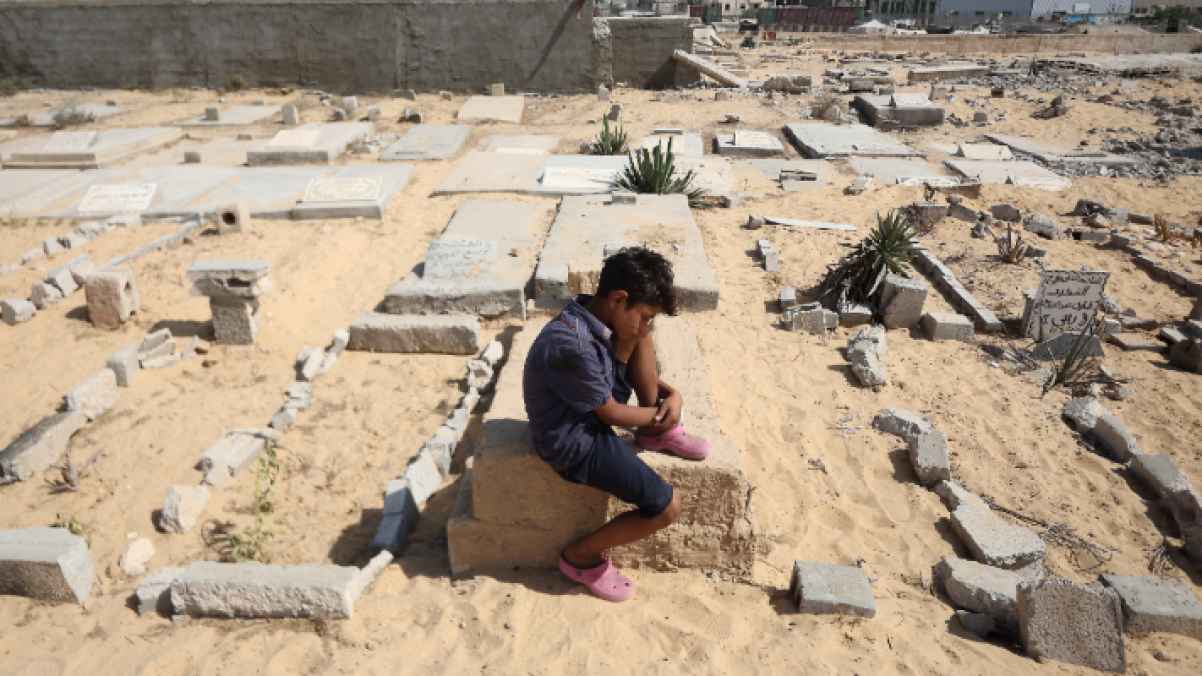Innocence suspended between rubble and graves… a Gazan child converses with absence through his tears

In a desolate corner of a cemetery in Khan Yunis, in the southern Gaza Strip, a small boy sat beside a freshly dug grave, his fragile body weighed down by the burdens of premature sorrow. He was not merely sitting; he seemed to be whispering unheard words to the one buried beneath the earth, telling of days that had lost their warmth, of a home reduced to rubble, and of a heart that knew the meaning of childhood only for a fleeting moment.
Tears streamed silently down his cheeks, a scene that embodied a pain beyond words. The boy did not know that cemeteries were not places for games or friendly gatherings, but for him they had become the last refuge, where he sought the scent of loved ones stolen by war. His sobs echoed against the silence of the tombs around him, carrying with them an innocent cry that only a grieving heart could hear.
Questions that could melt stone In his imaginary conversation with the one beneath the ground, he asked questions with no answers: “Why did you leave? Why did you abandon me? When will you return so we can play again as before?” Questions that could melt stone, exposing the cruelty of a world that spared his childhood no mercy. The boy clung to the cold gravestone as if trying to recover the warmth of a vanished hand, or an embrace that would never return.
This was not just an image of a child weeping by a grave; it was a living testimony to the scale of tragedy endured by thousands of children in Gaza. A scene that condensed the anguish of an entire nation, where laughter is buried under rubble, and children sit upon gravestones instead of school benches. Here, the cemetery transforms into a human story where tears mix with prayers, and hope collides with betrayal.
That boy of Gaza, who sat beside the grave of his loved ones, asked for nothing more than a simple right: to live his childhood like other children of the world, far from the sounds of explosions and sirens. But his harsh reality left him captive to searing loss and a memory heavy with tears. His conversations with the dead became more truthful than the promises of the living, and his bitter sobs became a mirror of a wound that will never heal.
